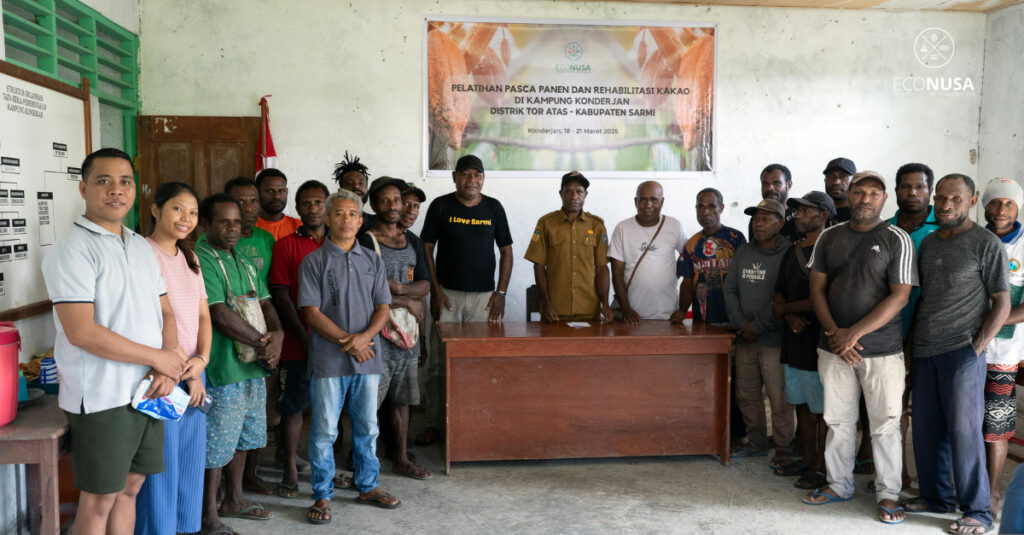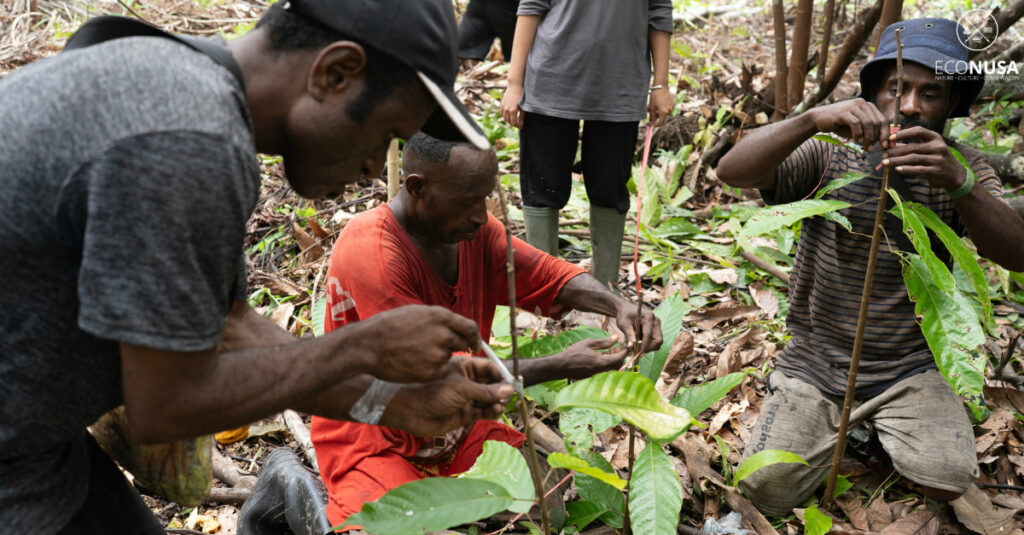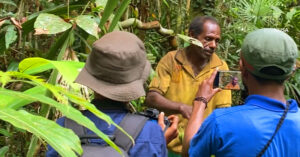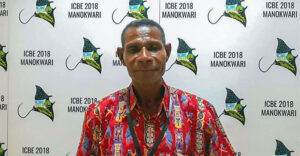
Kampung Konderjan, located in Tor Atas District, Sarmi Regency, Papua, has a long history of cocoa cultivation. Since the Dutch colonial era, the people of this village have been planting cocoa and relying on it as one of their main sources of livelihood. Over time, the region became known as the “chocolate king” of Papua due to its high quality and promising productivity.
However, that past glory is slowly fading. Increasingly extreme climate change and internal challenges have hindered the development of the cocoa sector that once sustained the local economy. While Tor Atas District still has around 44.03 hectares of cocoa plantations producing 6.55 tons (as of 2019), this is far from its true potential.
Climate Change: A Real Threat to Cocoa Productivity
In the past, flooding from the Tor River occurred just once a year, usually around November or December. Now, floods happen more frequently, with greater intensity and wider coverage. Many cocoa farms—especially those across the river—are regularly submerged. This has led to reduced harvests, damaged crops, and increased costs, as farmers must now use small boats to access their farms. Read Also: Reviving the Glory of Cocoa in Konderjan Village
The situation is worsened by the farmers’ limited financial means, which prevent them from buying fuel or repairing farming tools.

Internal Challenges: Lack of Maintenance and Technical Knowledge
Beyond environmental threats, Konderjan’s cocoa plantations also face internal issues. Many trees are left damp and unpruned, making them vulnerable to fungal diseases. Cocoa pods often rot due to improper pest management.
While there have been training sessions from the local agriculture department, many farmers feel these were incomplete. Some experienced farmers, who previously worked at large cocoa companies, have not yet shared their knowledge widely with others in the community.
EcoNusa Training: Building Resilience and New Hope
In response to these challenges, EcoNusa Foundation, in collaboration with the Konderjan Village Government, conducted intensive training for cocoa farmers from March 18–21, 2025. The program aimed to equip farmers with practical skills to meet the current challenges. Read Also: The Story of Cacao Farmers in Papua: from being Successful to Now being Struggle
The training covered:
- Rehabilitation of plantations and proper plant care
- Farm layout planning to adapt to flooding
- Post-harvest processing (including building fermentation boxes and drying platforms)
- Land selection strategies for safer, flood-resistant farming
This initiative not only targeted farmers, but also involved village officials and community groups as part of a collective effort to build community-based economic resilience.
Toward a Model Cocoa Village in Papua
Konderjan Village Head, Aser M. Borom, welcomed the initiative and encouraged farmers to apply what they had learned. He also urged group leaders and village authorities to actively support the program’s sustainability.
“Konderjan was once known as the chocolate king. I hope this program can revive our cocoa legacy and turn our village into a model cocoa-producing community in Papua,” he said.
The potential of cocoa in Kampung Konderjan is far from gone. With collaboration between the community, the village government, and organizations like EcoNusa, cocoa can once again become a key commodity driving the local economy. More than just a training, this initiative proves that adapting to climate change and empowering farmers are essential steps toward a sustainable future.







